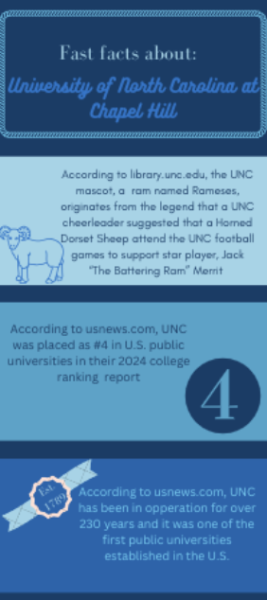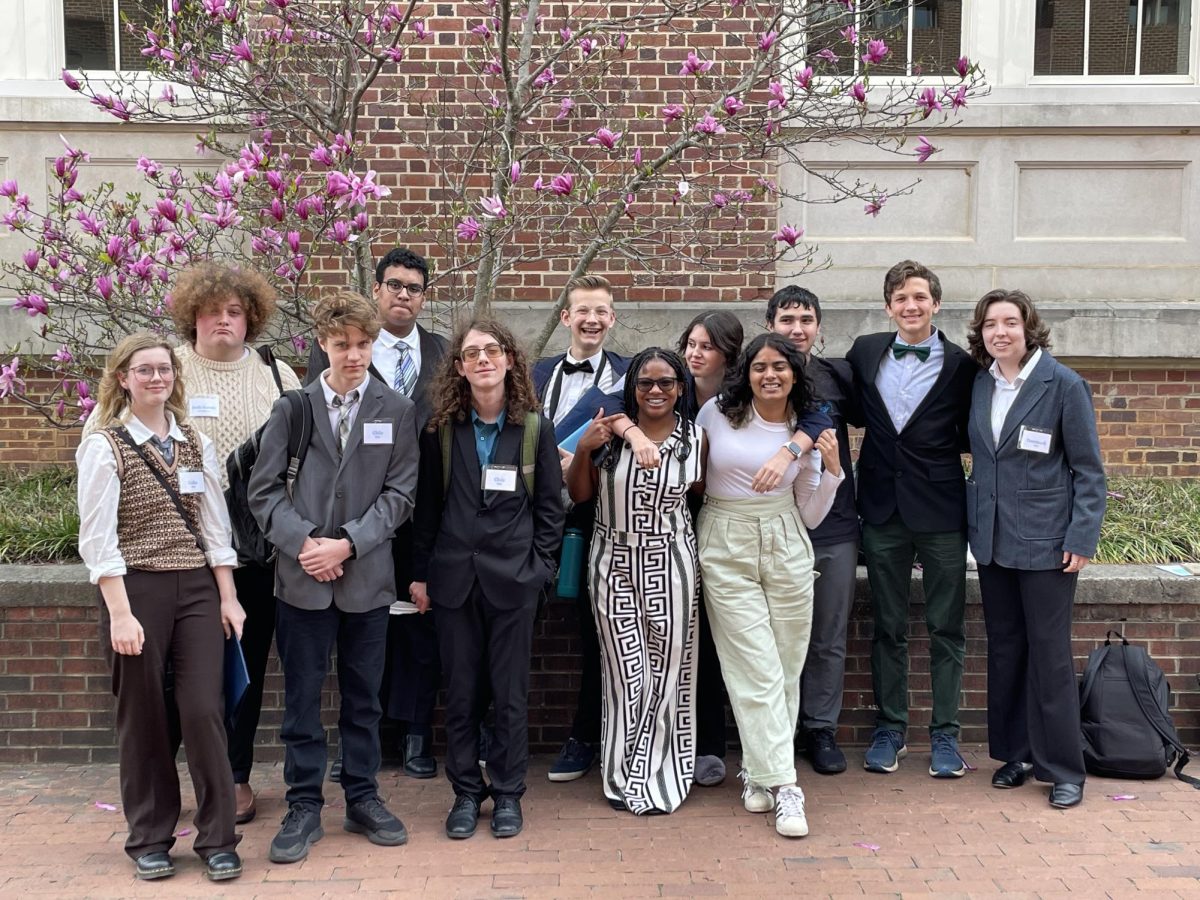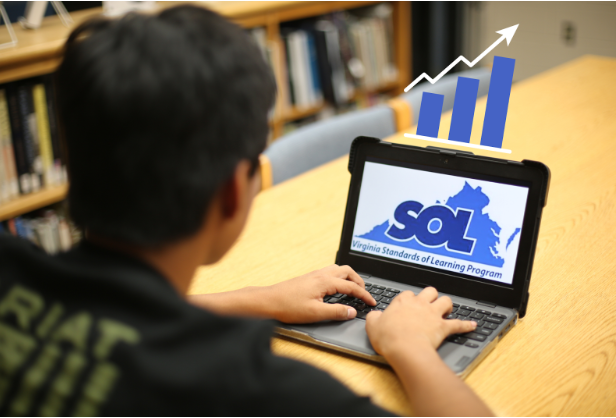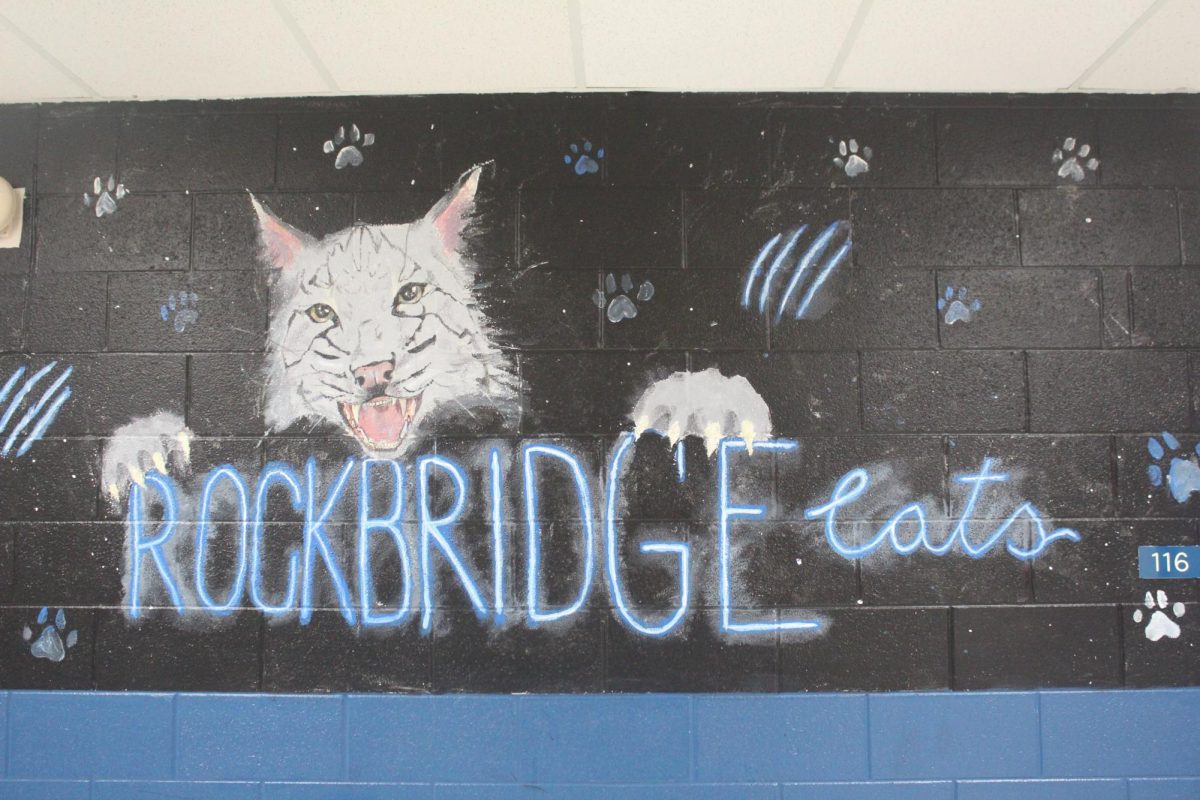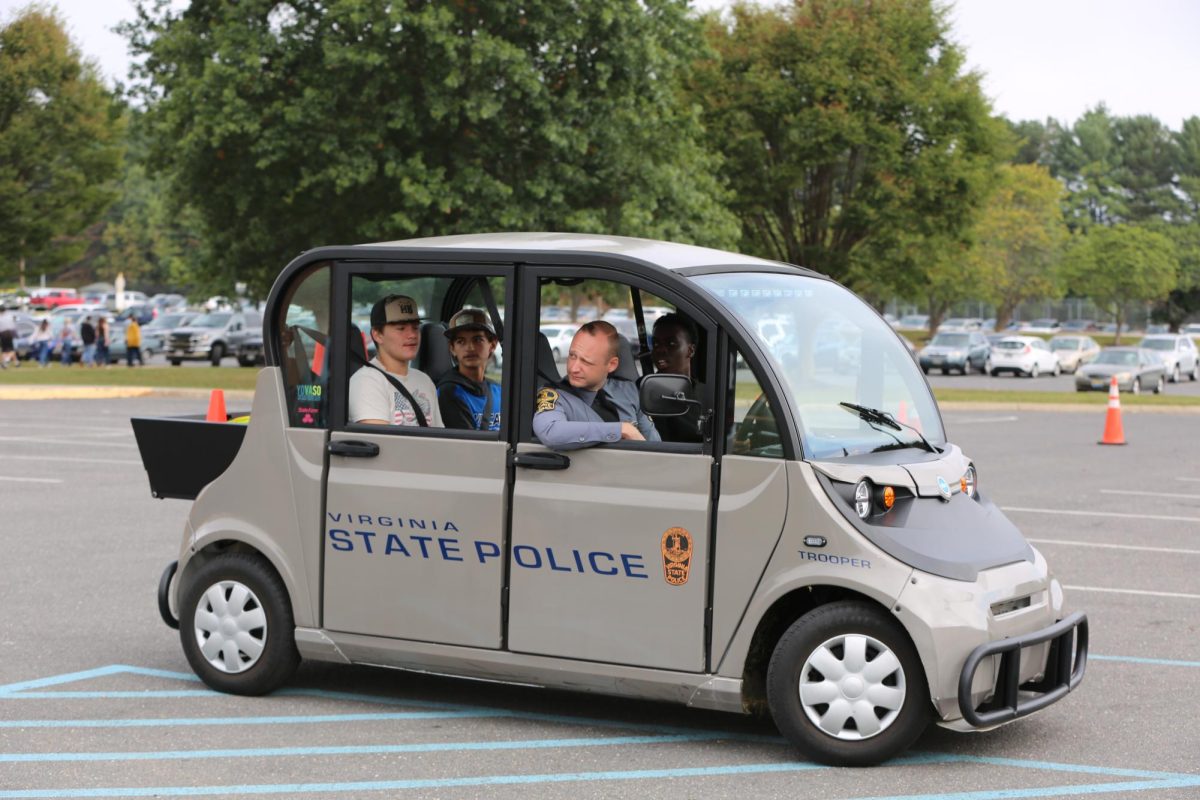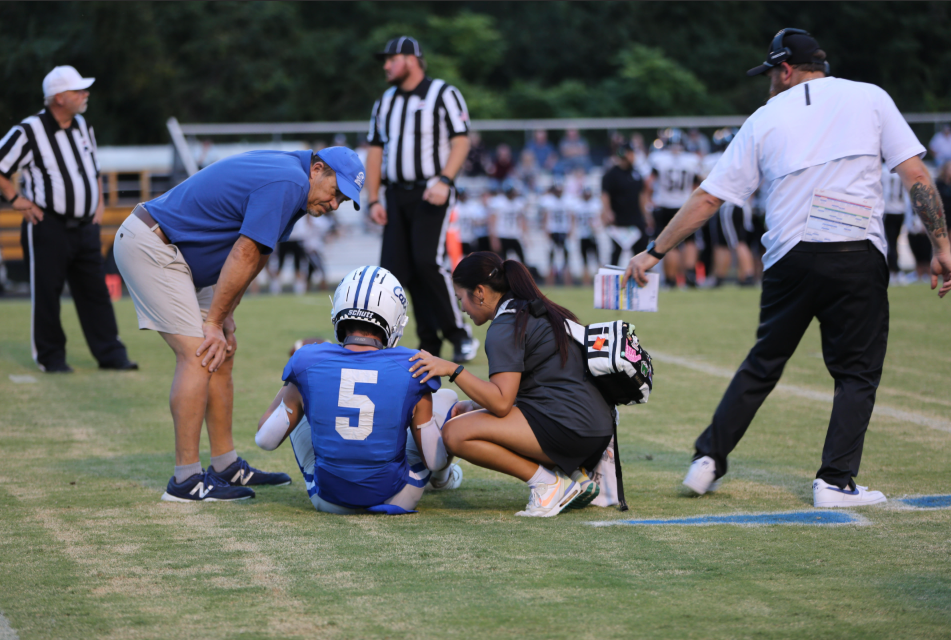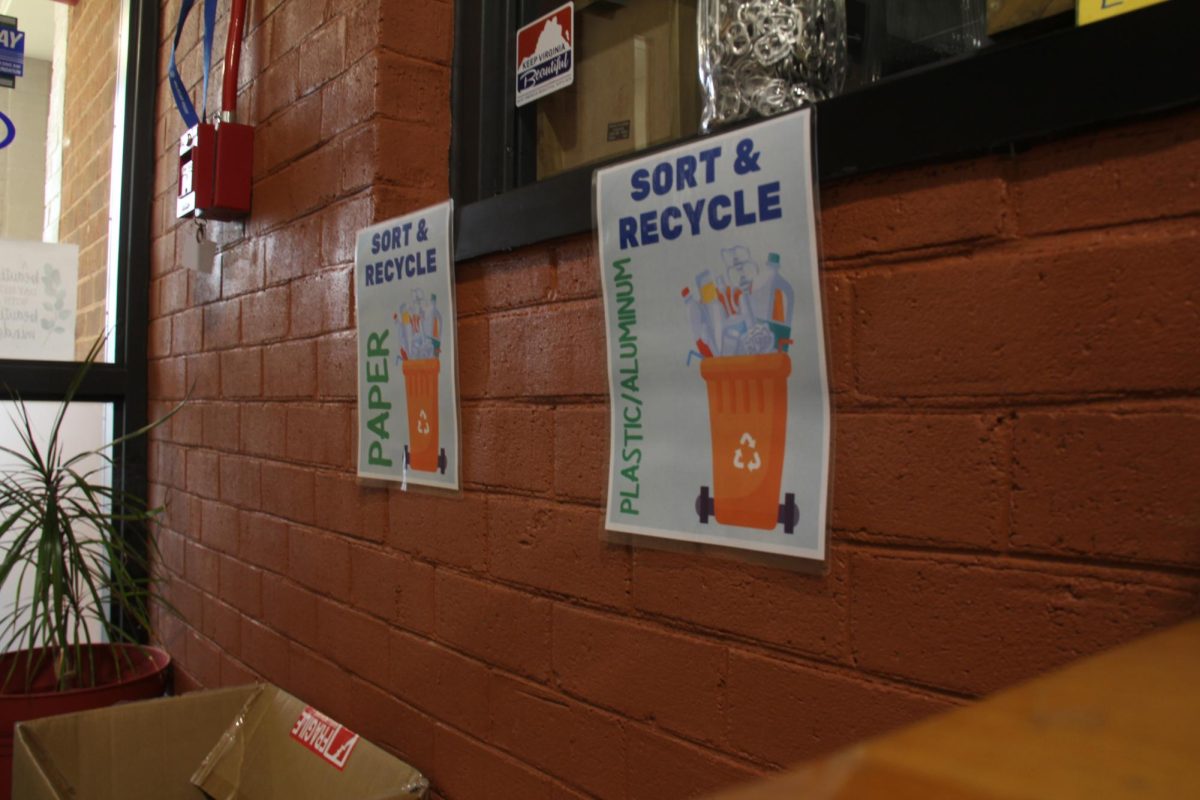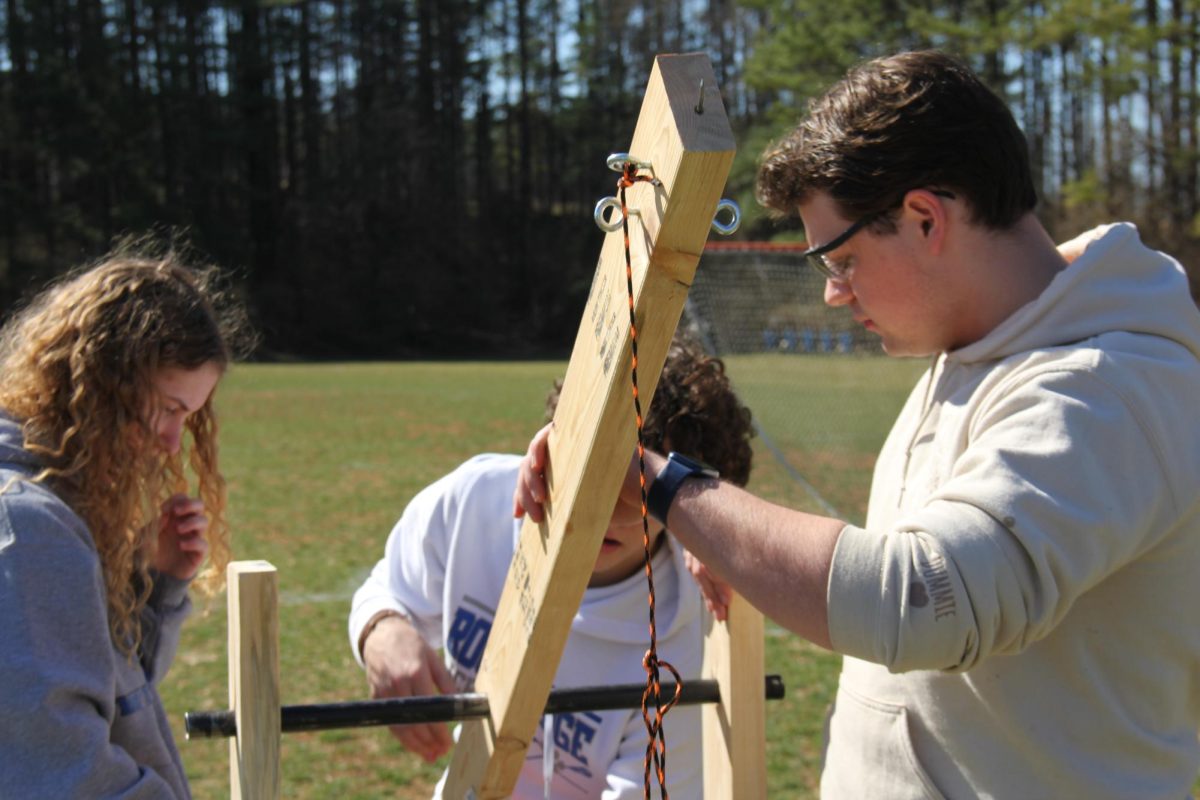Model UN Travels to the Chapel Hill Conference
Every year, the RCHS Model UN club attends the Chapel Hill conference at North Carolina University in Chapel Hill, North Carolina. In this three-day event, multiple schools participate in “simulations,” in which they role play as different delegates that represent a country or organization in a United Nations (UN) committee in order to solve a specific issue or problem. Typically the RCHS Model UN does simulations such as these, but they only last two hours, and all the students involved are from RCHS. In this conference, students debate on the same issue over the course of the three days against the same delegates.
Mr. Chris Gallagher, the RCHS Model UN sponsor, has been taking students to this conference for ten years.
“Model UN helps with students’ speaking, communication, and collaboration skills, as they have to learn to work with other students,” said Gallagher. “It helps them become more knowledgeable about international affairs and events, as that’s what they’re talking about.”
There are five main stages of these simulations: research, debate, negotiation, resolution, and action. The delegates begin the simulation by researching the topic of the simulation for roughly ten minutes. They then enter into the debate stage, followed by negotiations in which delegates draft a resolution to the issue. Once a resolution draft gains the appropriate amount of signatures and sponsors, it is passed into action and the simulation concludes.
These stages are general guidelines to the flow of debate, but some types of simulations, also known as committees, may follow different variations of these rules. The committees that students can participate in at the Chapel Hill Conference include: General Assembly, General Assembly Plus, Crisis Committee, and Joint-Crisis Committee (muncharia.org). Some variations add an extra step to the process called a crisis, which can happen at any moment. A crisis is an unexpected issue that arises during the simulation that will affect the debate. The General Assembly and General Assembly Plus both address global issues in their simulations, but the General Assembly does not have crisis updates, while the General Assembly Plus does (muncharia.org). The Crisis Committee and Joint-Crisis Committee both focus on specific historical and political events in which delegates represent high powered individuals, but the Joint-Crisis Committee has two opposing committees that debate on the same issue, adding an extra layer of difficulty to the simulation (muncharia.org).
Senior Claire Crossman intends to participate in the joint-crisis committee. She has been attending the Chapel Hill Conference for the past four years.
“When participating in a simulation, you have to recognize what the country, organization, or person you are representing wants, and work towards their goals, not your own,” said Crossman.
Model UN simulations and conferences have expanded upon Crossman’s collaboration skills, as it is essential to make allies in order to achieve one’s goals in these debates. It has also expanded upon her public speaking skills.
Sophomore Dorthy Lewis has been in Model UN for one year, and this will be her first trip to the Chapel Hill Convention. She decided to attend the conference to improve her skills in Model UN simulations, amongst other reasons.
“I want to learn more about teamwork and understanding other peoples’ points of view. Additionally, Model UN is a great resource for helping me understand world events because it makes them feel more real, when it may not make sense in the abstract,” said Lewis.
Mr. Gallagher enjoys going into different committees’ sessions to see his students participate in the conference and have an enjoyable experience. He also enjoys listening to the debates, as they are often very interesting and exciting. Overall, he thinks it’s a very beneficial and fun event for the students.
“Some students have even said this was one of their most enjoyable events in their high school career. It’s a fun and memorable experience that students probably won’t get in their busy college lives,” said Gallagher.
15 students will be attending the conference on March 1st-3rd.
